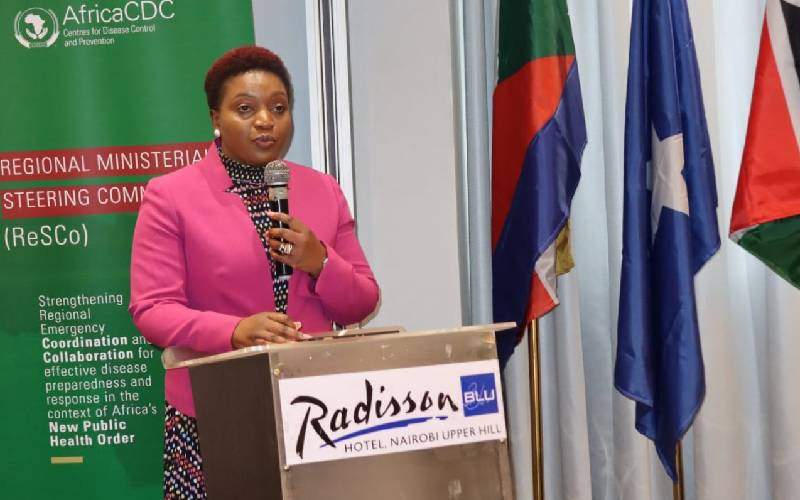 Senator Judy Sijeny walking out of the Serena Beach conference hall after meeting with County Assemblies Delegated Legislation chairmen on devolution
Senator Judy Sijeny walking out of the Serena Beach conference hall after meeting with County Assemblies Delegated Legislation chairmen on devolution
School children will not be given condoms and family planning pills after all, with a proposed Government Bill now making it clear that such products will only be legally available to adults.
A new version of the Kenya Health Bill 2014, which will be the primary health law, has been revised to indicate that condoms and family planning pills will only be available to men and women of reproductive age. Such age in Kenya is legally considered to be at 18 years.
"Every person has a right to reproductive healthcare, which includes the right of men and women of reproductive age to be informed about, and to have access to reproductive health services," says the Bill which is still under revision.
An earlier version of the proposed legislation was not specific on the age limits, which could have been exploited to mean such services were legally available to school age children.
If the Ministry of Health, which is sponsoring the Bill gets its way, then this will supersede an alternative Reproductive Health Care Bill 2014 which is still pending in the Senate.
In June, the Senate Bill sponsored by nominated Senator Judith Sijeny had provoked heated debate across the country for suggesting that condoms, pills and other family planning services be made available to adolescents.
The Bill described adolescents as persons in Kenya who are aged between 10 and 17, a group essentially between Standard Five and Form Three.
"In the provision of reproductive health services to adolescents, parental consent is not mandatory," the Sijeny Bill had said.
But even the revised Health Bill 2014 does not categorically specify what the reproductive age is, with the World Health Organisation putting it at between 15 and 44 years.
Most health-related documents in Kenya put the lower limit at 18 as the legal adult age, which effectively means they can make their independent reproduction choices.
Although a source close to the Bill drafters says it is not yet complete, it will be a major disappointment for health workers' unions which have been fighting for the establishment of a national Health Service Commission.
"It has been made clear that this is not going to happen because it would be unconstitutional," the source said in confidence.
Health workers' unions have been agitating to have such a commission or alternatively have the human resource component of the sector brought back to the central government.
The Bill, however, proposes the creation of a legal unit which will regulate the practice of herbal and alternative medicine in counties, including controlling how much patients should pay for such services.
If this becomes the law, then for the first time a herbalist will be able to legally refer a patient to a conventional doctor. It is not clear whether a conventional doctor will also be able to refer a patient to a herbalist.
The national government department of health shall develop policy guidelines for a system of referrals from practitioners of traditional and alternative medicine to conventional health facilities.
 The Standard Group Plc is a multi-media organization with investments in media platforms spanning newspaper print
operations, television, radio broadcasting, digital and online services. The Standard Group is recognized as a
leading multi-media house in Kenya with a key influence in matters of national and international interest.
The Standard Group Plc is a multi-media organization with investments in media platforms spanning newspaper print
operations, television, radio broadcasting, digital and online services. The Standard Group is recognized as a
leading multi-media house in Kenya with a key influence in matters of national and international interest.











